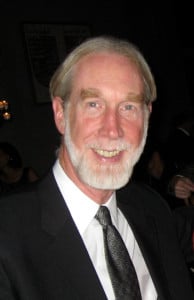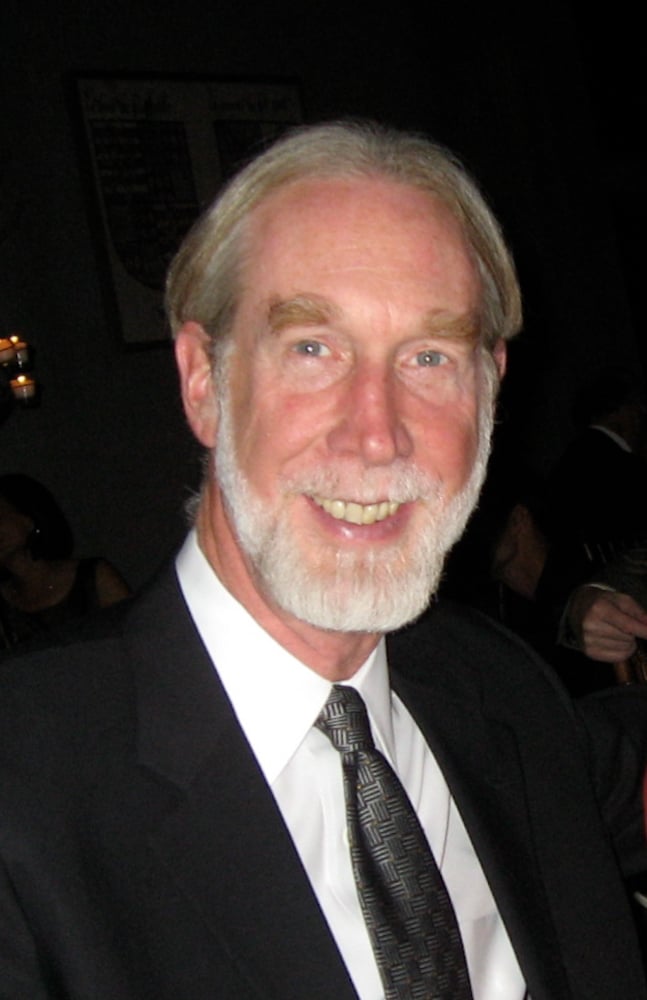Rev. Scotty McLennan, who has been the dean for religious life at Stanford since 2000, recently announced his retirement from the position (effective summer 2014) to take a sabbatical before he returns to Stanford to teach. Aside from being a community minister at the Unitarian Universalist Church of Palo Alto, he is also a published author and lawyer. While serving as dean at Stanford, McLennan hosted the Dalai Lama–both in 2005 and in 2010. The Daily sat down with McLennan to talk about his experiences at the Farm.

The Stanford Daily (TSD): What is one of your most memorable experiences at Stanford?
Scotty McLennan (SM): To open the CIRCLE, which is the Center for Inter-Religious Learning and Experiences, was a very memorable day. We had a dedication for it…We had people from all the different Stanford associated religion groups there. To get this incredible facility dedicated and up and running was really exciting.
Some of the other most memorable times have been major events in the world and in the University. So when we had, just after 9/11 of 2001, a major gathering out in the Main Quad of thousands of people responding to what happened in 9/11 from people with various perspectives [and] sounds of different traditions. We had Buddhist bells, a Muslim call to prayer and a number of other things.
TSD: What will you miss most about this university and the position you held as Dean for Religious Life?
SM: Luckily for me, I’m not going to miss the University because I’m going to continue teaching here. I’ll be back teaching ethics, primarily business ethics in the future.
I’ll miss the wonderful and privileged opportunity to oversee all of the religious life on campus and help nurture and encourage religious life, to work with the amazing colleagues that I have here in the Office for Religious Life and all of the people associated with those 35 religious groups.
This office serves not just students, but faculty and staff and alumni and people from the local community. To provide a sense of family and a sense of interconnection for everyone no matter where they may be situated in the University–that’s something I’ll miss very much.
TSD: What would you want your legacy at Stanford to include and what would you like to be remembered for?
SM: The most important thing for me is training our students for global leadership in the 21st century. I feel that this leadership critically includes inter-religious literacy and relational agility to get to know people from different traditions because of the amount of bigotry and discrimination and violence done in the name of religion. I really feel like all of our graduates need to go out into the world and be part of the solution, not part of the problem.
So, all of the programs that we’ve started like the Center for Inter-Religious Community and Experiences, the Rathbun program for exploring what leads to a meaningful life and setting up programs like the Fellowship for Religious Encounter are what I feel is the centerpiece of what I’ve done and what I would like to be remembered for.
Creating the Rathbun Fund, funded by the Foundation for Global Community, has given us the opportunity to bring speakers like Sandra Day O’Connor, George Shultz, Marian Edelman, the Dalai Lama.
TSD: What are your joys and sadnesses? How are you feeling as the time for your retirement approaches?
SM: I have a lot of joy when I think about getting to spend more time with my two grandchildren and hopefully more in the future, with my friends, with a concentration on teaching and so on.
On the other hand, there is certainly a level of sadness in leaving a context in which I’ve really thrived and loved the people that I’ve been able to work with and the opportunities to look at the big picture between religion and spirituality in people’s lives, and the opportunities to be with people at these very poignant times.
I’ve been pleased with what I’ve been able to do, but I am excited to see where this may go in the future because literally at Stanford, the sky is the limit. This is the Silicon Valley, we had a gold rush, it’s California, it’s the frontier still in many ways.
As someone who grew up in the Midwest and spent most of my life on the East Coast, being out here and seeing the energy and the vision, the sky is the limit here for the Office for Religious life in the future. I really wish my successor all the best in new envisioning and new action.
Contact Angelique Dakkak at angeldak ‘at stanford.edu.
